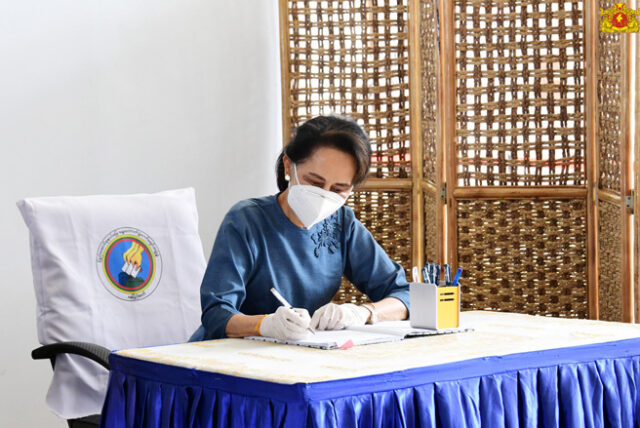NEW DELHI: A lot can change in five years and no one realises this better than Aung San Suu Kyi, Myanmar’s state counsellor (equivalent to prime minister). As she leads her party the National League for Democracy (NLD) to polls on Sunday, the expectation is of an emphatic win though perhaps short of the landslide victory of 2015.
As many as 92 parties are in the fray though the contest is essentially between the NLD and the USDP (Union Solidarity and Development Party), an army creation with a constitutionally sanctioned stranglehold over 25% of parliamentary seats. It could play the role of king-maker in the unlikely event of the NLD failing to win a majority.
The major concern internationally is the virtual disenfranchisement of Rohingya voters in Rakhine state. The election commission has cancelled elections in large parts of the state citing security concerns. It is expected to deepen the sense of marginalisation among the Rohingya, also among people in western Chin state where the army is fighting rebels and there has been large scale displacement of people.
Internationally, Suu Kyi has fallen from grace. Once hailed as an icon of democracy and the darling of the West, she is accused of conniving in the army crackdown on the Rohingya in Rakhine state.
The 2017 crackdown has been likened by some aid groups to genocide and resulted in Amnesty International stripping her of its highest honour, the Ambassador of Conscience Award, two years ago.
Gautam Mukhopadhyay, India’s former ambassador to Myanmar, acknlowledges that “Suu Kyi lost her image as an icon of democracy and was also seen as shielding the Myanmar army.” But he believes that the “civil mililtary relationship in Myanmar is more or less settled,” hinting that Suu Kyi and the army have an understanding on the way forward.
His view was echoed by Khin Zaw Win, director of the Yangon-based policy advocacy group Tampadipa Institute, who says there is “co-habitation between the army and the civilian government,” in Myanmar. In his view, Myanmar’s democracy is not plural with one party calling the shots, neither is it consultative in nature. According to him, Suu Kyi has failed to bring in federalism and peace in ethnic relations during her years in power.
The country’s nascent democracy is perceived as illiberal and authoritarian, frowning on all forms of dissent. Those facing a backlash are not just ethnic minorities leaders but journalists and activists as well with Suu Kyi being blamed for coming down heavily on democratic norms.
But the NLD leader known as “the lady” in Myanmar remains an adored figure, one who is seen to have sacrificed much in the cause of her nation.
Professional newshound, have navigated through typewriters, computers and mobile phones during my over three-decade-long career working in some of India's finest newsrooms (The Times of India, Financial Express). Pakistan, Nepal, Bangladesh and Bhutan are my focus, also Sri Lanka (when boss permits). Age and arthritis (that's a joke) have not dimmed the thrill of chasing a story. Loves music, animals and pasta.





